
Make Do And Mend Print A4 fun poster wall art decor typography
Restoration revolution: how make do and mend turned into a fashion statement As interest grows with TV shows, books and now a major a new exhibition in London, the idea of repairing beloved items.
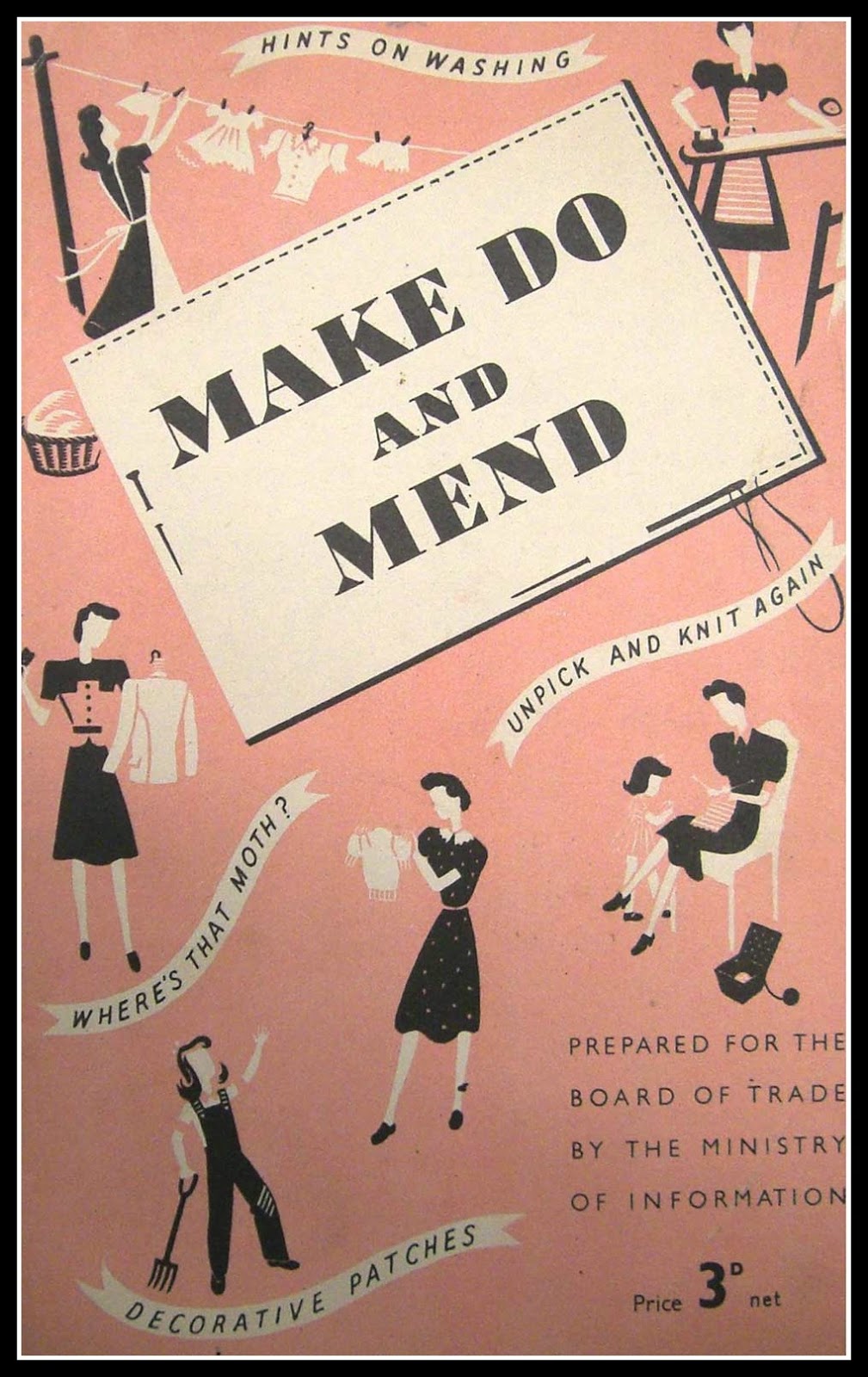
Harvest Lane Cottage Make Do and Mend... Do It!
10 Top Tips For Winning At 'Make Do And Mend' The Second World War saw unprecedented government intervention into everyday life on the British home front. Food rationing began in 1940 and clothes were rationed from 1 June 1941. Fabric was essential for war purposes, such as uniforms.

Alter The Press! Album Review Make Do And Mend End Measured Mile
INF 13/144 - 'Make Do and Mend' poster, 1939-1945. The government needed everyone in the Second World War to support and take part in the war effort. This included the people back at home as well as the soldiers who were away fighting. People who stayed in Britain and carried on working, along with children who carried on going to school.

the cover of make do and mend with scissors, thread, paper, and other
The Make-do and Mend credo - given official support by the Board of Trade in 1942 - tried to make people think differently about where they got clothes from. With coupons limiting what could be.
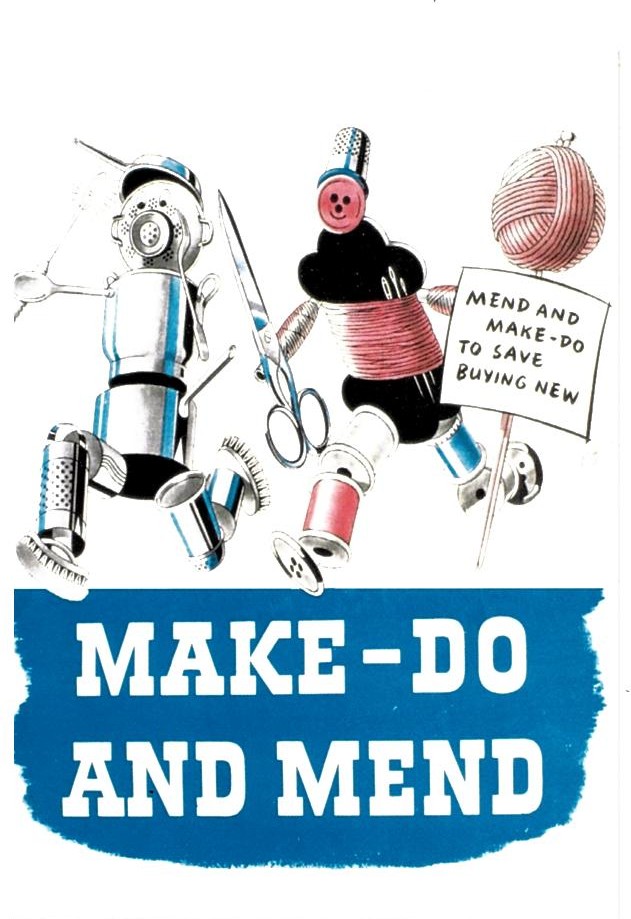
Make Do and Mend The Art of Repair Cooper Hewitt, Smithsonian Design
The enthusiasm and resourcefulness displayed by Britons, especially after 1916 when hopes for a short war faded, provided a template for the famous "make do and mend" ethos of the 1940s. While.

Make Do And Mend Jodie Anna
28 February 2005. On of the slogans of the War effort was "Make do and Mend", another was "waste not want not", and to this purpose a lorry would pull up outside the school gates, about.
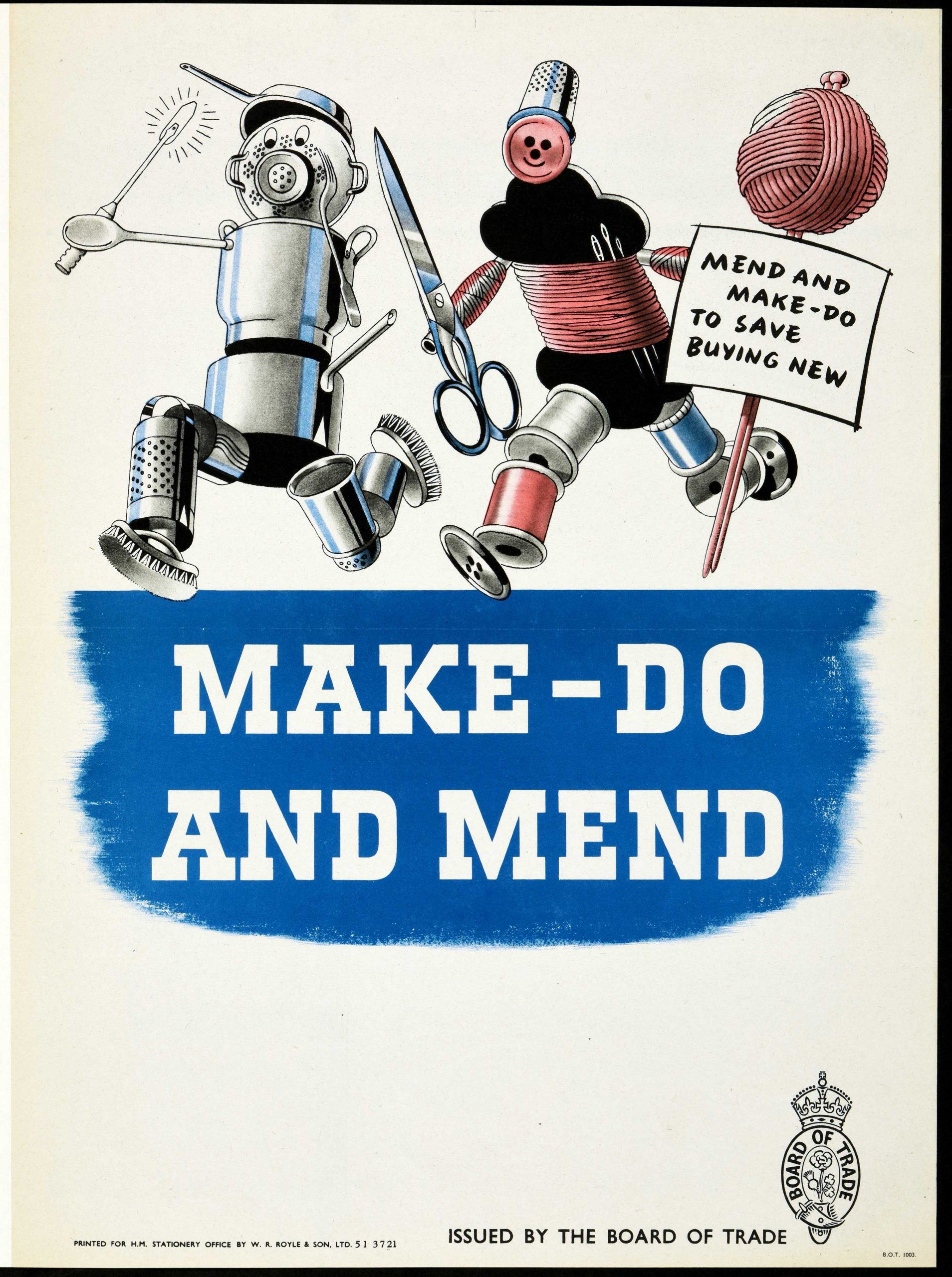
Make Do and Mend The National Archives
Make Do and Mend was one of several campaigns introduced by the British Government (with the help of voluntary organisations) to reduce clothing consumption and save resources during the Second World War. Offering practical guidance on caring for, altering, and mending clothes, instructional pamphlets were produced.

Make do and mend poster in world war II. Download Scientific Diagram
The Make Do and Mend ethos flourished in France, the United Kingdom and the United States in the 1940s. Materials rationing imposed during World War II highly impacted the apparel industry. Buying new was limited by coupons, which encouraged people -and women especially- to take good care of their personal belongings and find creative ways to.

"Make Do and Mend British Ministry of Information World War II
04 December 2005 MAKE DO AND MEND Winifred Barber The clothing coupons never went far enough, and we used to save them for emergencies, in case you lost a child's shoe or anything like that.

Motivation to Make Do and Mend Liz Pearson Mann
The Make Do and Mend campaign was launched by the Board of Trade in 1942. This poster was illustrated by Donia Nachsen to encourage people to repair their clothes and make use with clothing they already had. See object record Posters Donate rags © IWM (Art.IWM PST 14752)
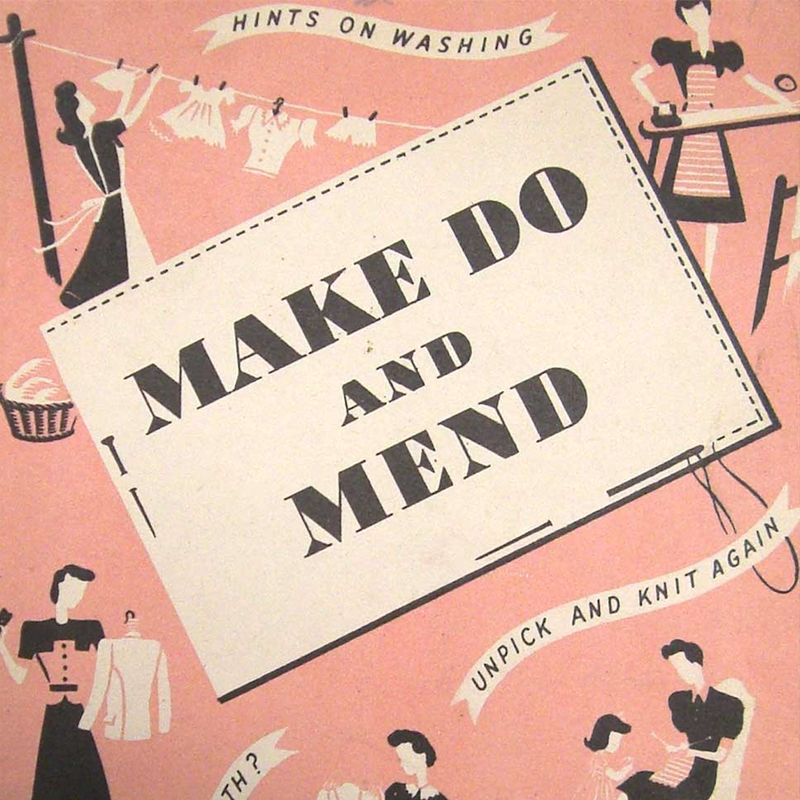
Make Do & Mend TALLIS GCSE PHOTOGRAPHY
Make Do And Mend eransford 781 subscribers Subscribe 1.3K Share 147K views 14 years ago From the collections of the Imperial War Museum "How to make-do-and-mend." An exhibition arranged by the.

the homely place make do and mend
Clothes rationing in Britain From June 1941 until 1949, buying new clothes was rationed in Britain. This newsreel trailer, made by the Ministry of Information in 1943, is called 'Make Do and Mend'. It was part of the Government's campaign urging people to repair, reuse and reimagine their existing clothes during the Second World War.
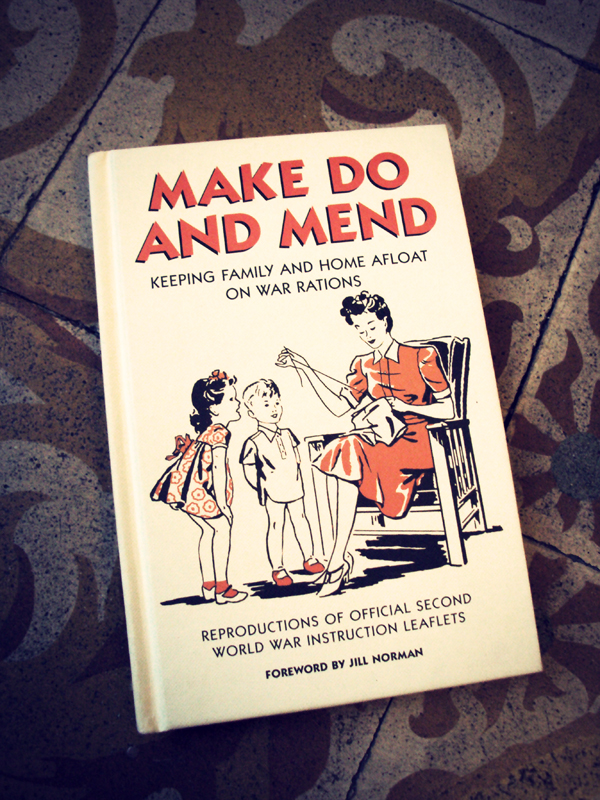
Make Do and Mend Colette Blog
24K views 3 years ago From June 1941 until 1949 during the Second World War, buying new clothes was rationed in Britain. This newsreel trailer, made by the Ministry of Information in 1943, is.
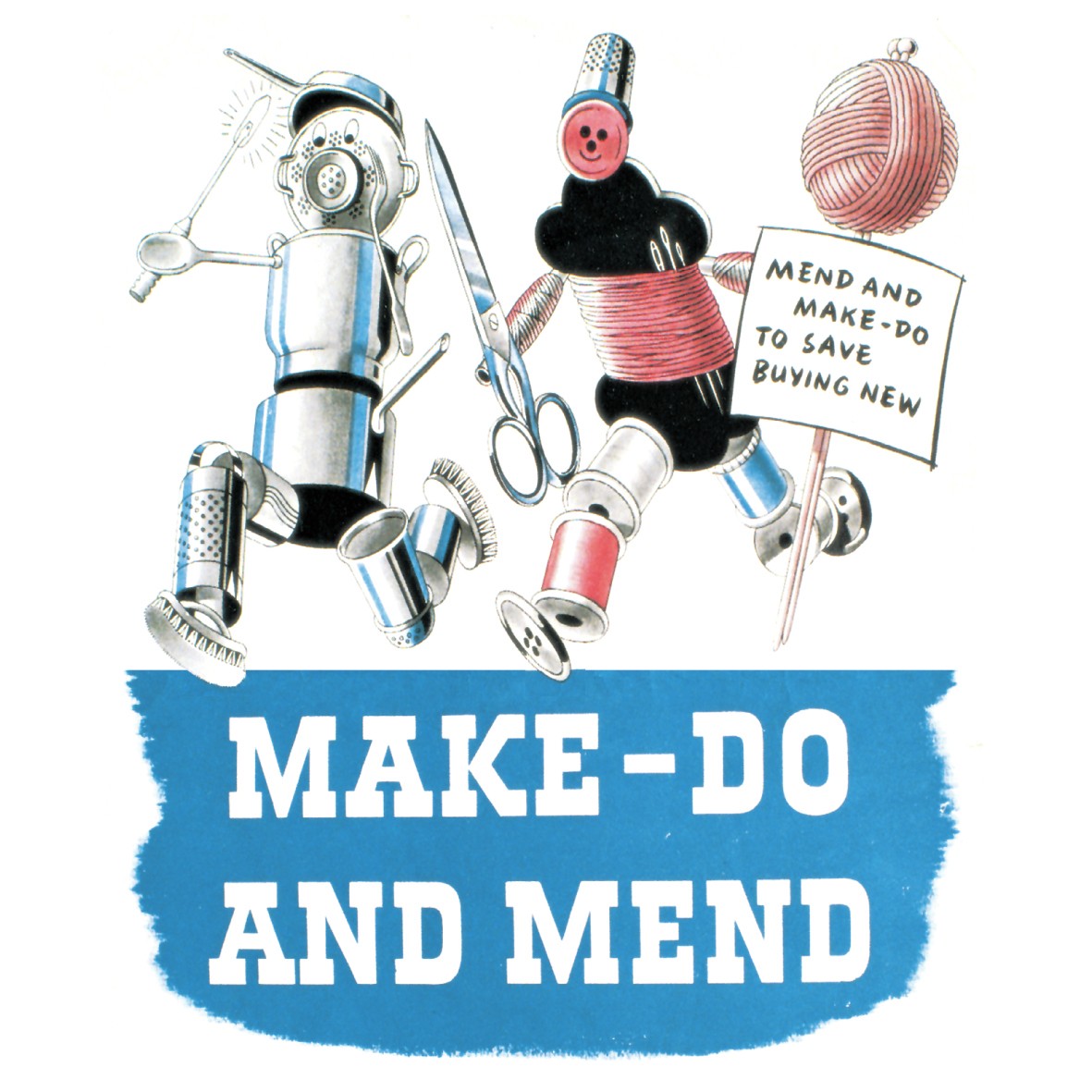
vitiworks Make Do And Mend
The 'Make do and Mend' campaign was introduced by the government to encourage people to get as much wear as possible out of the clothes they already had. Posters and information leaflets gave.

Pin on The 1940s
The 'make do and mend' ethos, the culture of repairing and saving, gaining a revival in today's society was grounded during the conflict which lasted from 1914 to 1918 - the Great War.

Make Do and Mend Autumn Cleaning Tasks POPSUGAR Home UK Photo 7
The government launched the 'Make Do and Mend' campaign to encourage everyone to make their existing supplies of clothes last longer. Taking good care of your clothes was a key part of the Make Do and Mend message and posters and leaflets were circulated to give everyone help and advice.